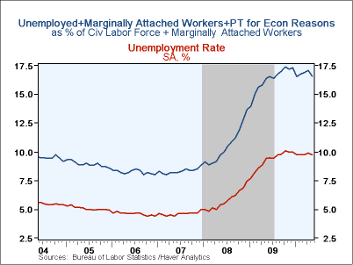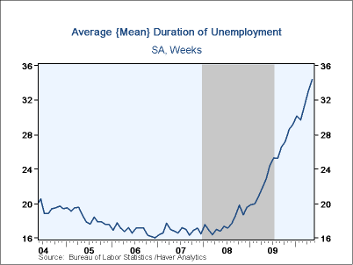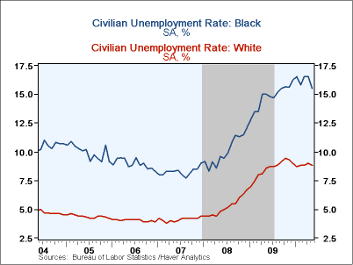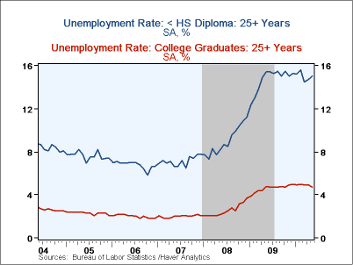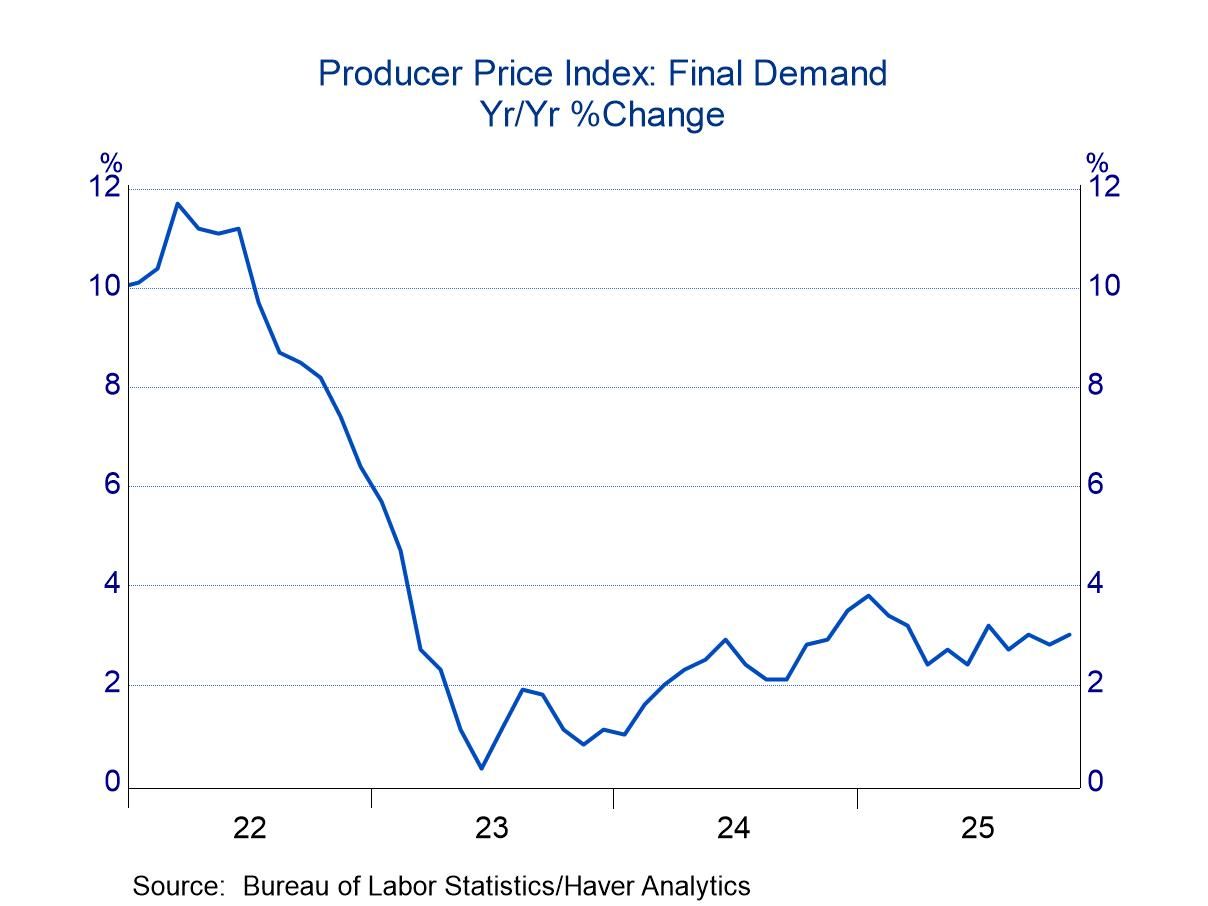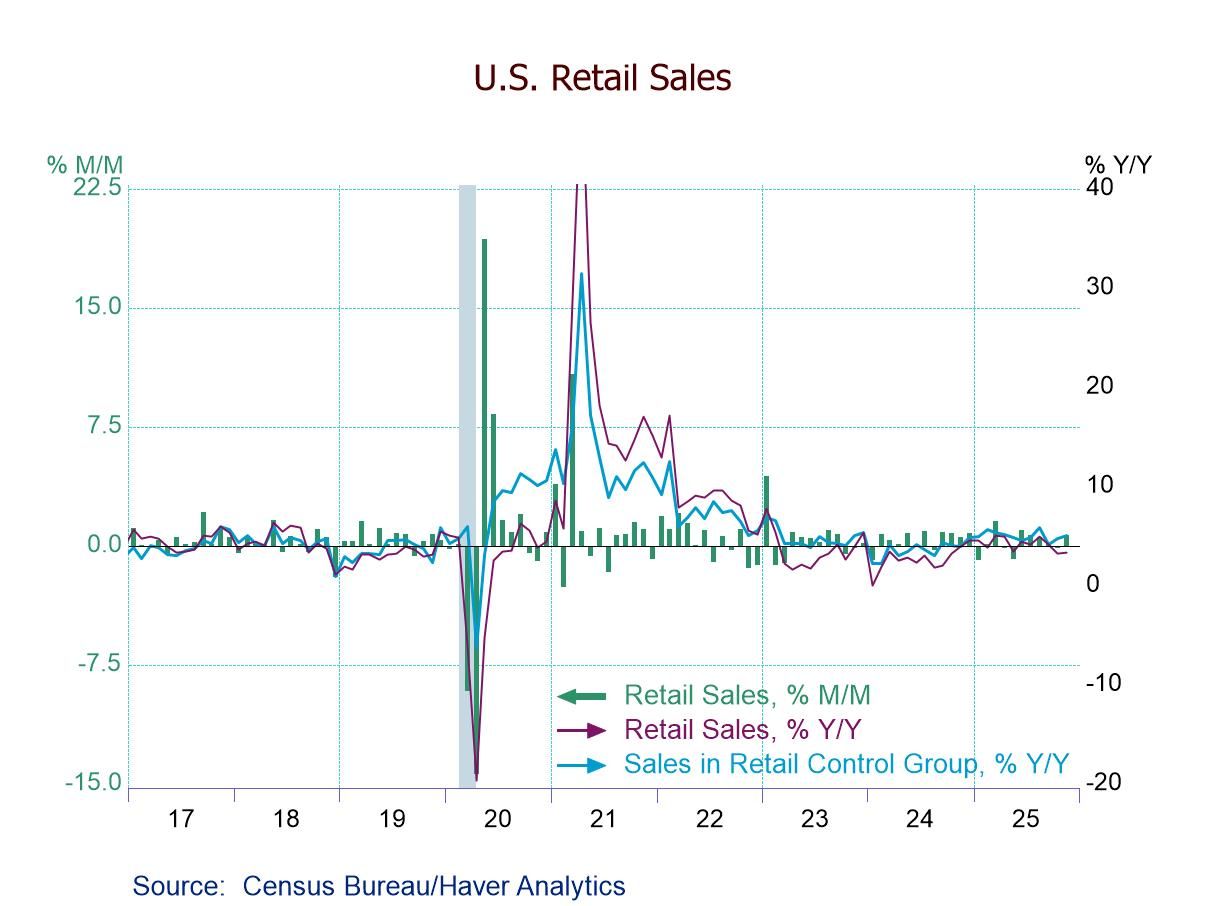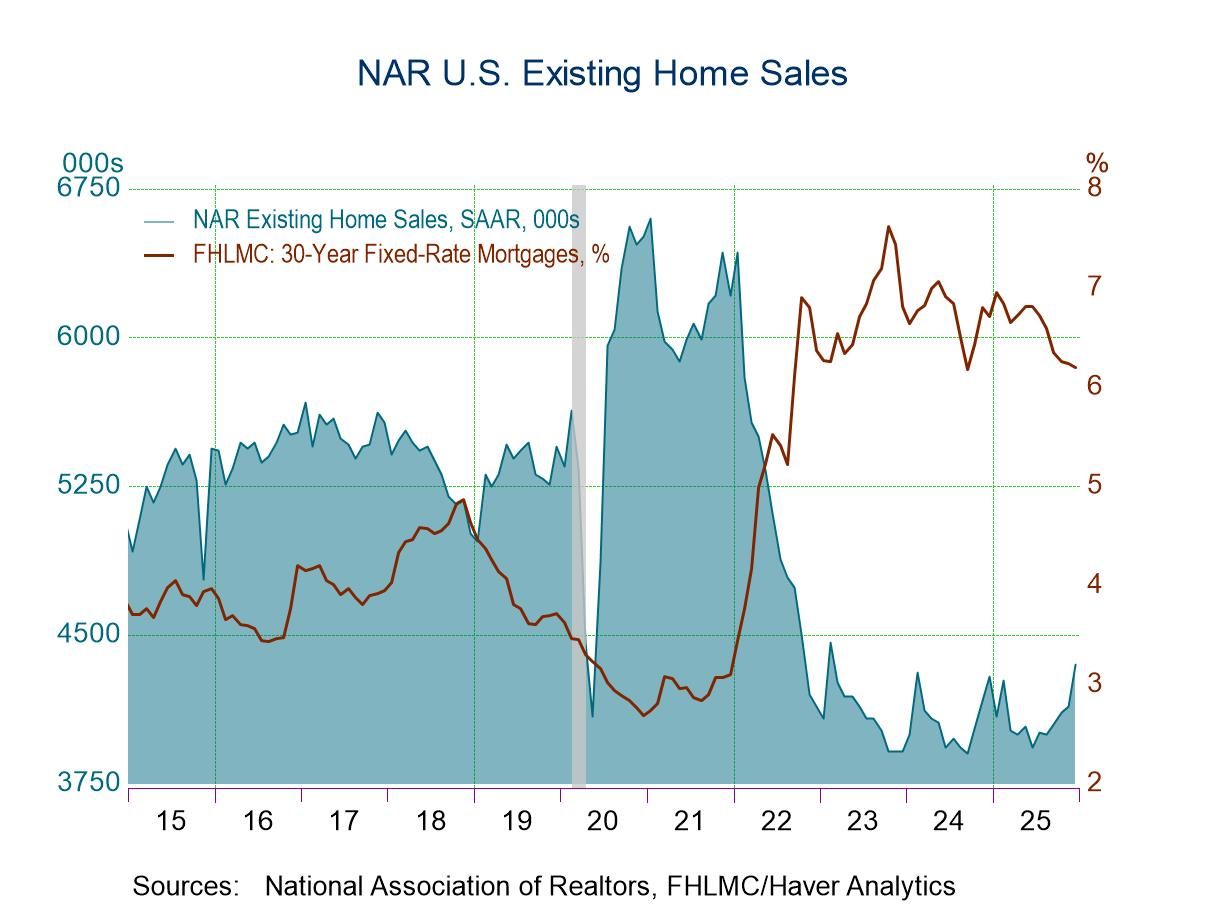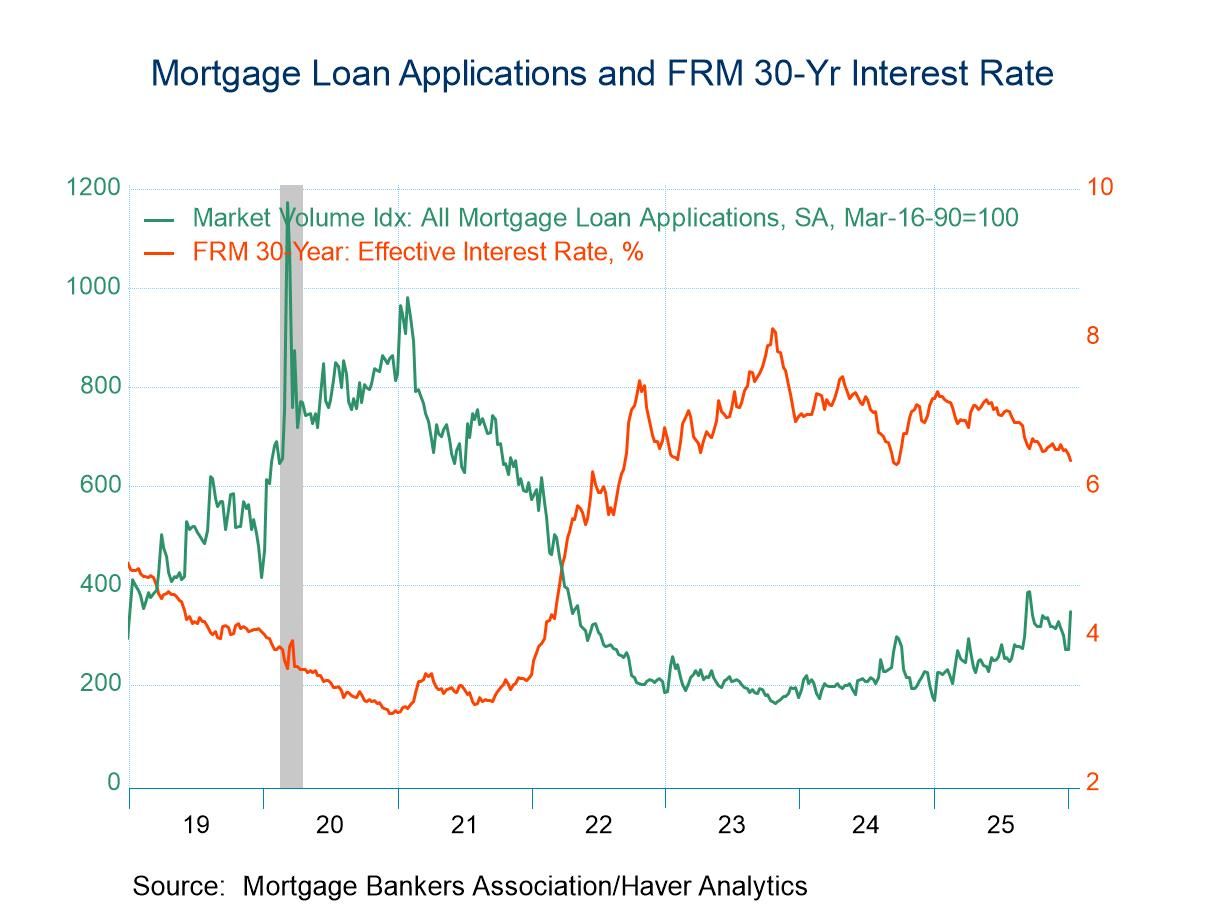 Global| Jun 07 2010
Global| Jun 07 2010U.S. Unemployment Situation Varies Greatly For Many Reasons
by:Tom Moeller
|in:Economy in Brief
Summary
Contained in Friday's employment report, which showed that the total civilian unemployment rate fell, was an increase in a broader measure which includes marginally attached workers and those working part-time for economic reasons. [...]
Contained in Friday's employment report, which showed that the total civilian unemployment rate fell, was an increase in a broader measure which includes marginally attached workers and those working part-time for economic reasons. This series slipped to 16.6% from the 4Q '09 high of 17.3%, but the high levels suggest digging deeper into the report for a fuller appreciation of the jobs picture, and it's not good.
To start, the average duration of unemployment rose to a record high of 34.4 weeks, up ten weeks from last year's average. The increase reflected an increase in the percentage of those unemployed for 27 weeks or more rising to 46.0% from 31.1% last year.
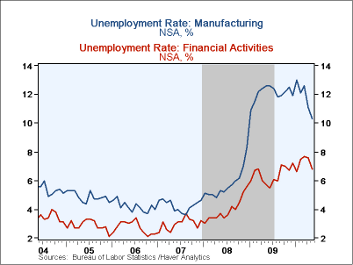 By industry, the unemployment rate for
construction stood at 20.1% versus its high of 27.1% in February. These
figures are not seasonally adjusted (NSA) so an upturn during winter
was followed by a normal drop come spring. But the y/y figure compares
to 19.2% one year ago and a range of 5%-to-8% before the recession
began. In manufacturing, unemployment stood at 10.3% versus 12.1% for
all of last year and more than double the 2007 average. In
transportation, the rate also was double-digit but in the financial
industry it stood at 6.8% versus 3.0% in 2007. Unemployment in
government sector lagged all these rates.
By industry, the unemployment rate for
construction stood at 20.1% versus its high of 27.1% in February. These
figures are not seasonally adjusted (NSA) so an upturn during winter
was followed by a normal drop come spring. But the y/y figure compares
to 19.2% one year ago and a range of 5%-to-8% before the recession
began. In manufacturing, unemployment stood at 10.3% versus 12.1% for
all of last year and more than double the 2007 average. In
transportation, the rate also was double-digit but in the financial
industry it stood at 6.8% versus 3.0% in 2007. Unemployment in
government sector lagged all these rates.
By age, the unemployment rate for teenagers stood just under its record high last month at 26.4%. For teenage males it was 28.1%. For those aged 25 or over, the rate also was near its record at 8.4% which was more than double the 2007 average. For adult men, the unemployment picture was more discouraging. Overall the rate of 10.5% compared to 8.8% for women. For men over-25 the rate was 9.1% versus 7.6% for women. For both, these rates are double the 2007 low.
By race the unemployment figures indicate an even sharper divergence. The white unemployment rate of 8.8% compared to 15.5% for African Americans. For teenage blacks the rate jumps to an even higher 38.4%; 39.7% for women compared to 25.0% during all of 2007. For whites the unemployment rate overall was 8.5% last month, double the '07 rate. For teenage whites the rates also was a healthy 25.1% and was 26.2% for males.
Education pays. For adults with less than a high school diploma the unemployment rate totaled 13.6% last month compared to 10.3% for those graduates but no college. Having attended some college helped and lowered unemployment further but graduating dropped the unemployment rate to 4.4%. The unemployment rate for adult whites with a BA degree or higher stood at 4.1% while for Asians it was 4.8% last month. For Hispanics or Latinos the rate was 5.9% and for blacks the rate totaled 7.2%. All of these rates are roughly double the 2007 average.
The figures referenced above are available in Haver's USECON database. Additional detail can be found in the LABOR and in the EMPL databases.
Tom Moeller
AuthorMore in Author Profile »Prior to joining Haver Analytics in 2000, Mr. Moeller worked as the Economist at Chancellor Capital Management from 1985 to 1999. There, he developed comprehensive economic forecasts and interpreted economic data for equity and fixed income portfolio managers. Also at Chancellor, Mr. Moeller worked as an equity analyst and was responsible for researching and rating companies in the economically sensitive automobile and housing industries for investment in Chancellor’s equity portfolio. Prior to joining Chancellor, Mr. Moeller was an Economist at Citibank from 1979 to 1984. He also analyzed pricing behavior in the metals industry for the Council on Wage and Price Stability in Washington, D.C. In 1999, Mr. Moeller received the award for most accurate forecast from the Forecasters' Club of New York. From 1990 to 1992 he was President of the New York Association for Business Economists. Mr. Moeller earned an M.B.A. in Finance from Fordham University, where he graduated in 1987. He holds a Bachelor of Arts in Economics from George Washington University.


